Think “gypsy” and you’re likely thinking of some stereotype. Maybe you’re thinking of a “good” generalization— such a passionate people! What guitar music! More likely, in today’s Europe, the word conjures up uglier notions: outcast, beggar, thief.
Chloe Borkett’s photography avoids either extreme. Over the course of six months, she took portraits of Britain’s Gypsies and Irish Travelers (read here for a detailed take on the most current correct names for the group) in their homes. The seemingly mundane moments from daily life are a direct rebuttal to the wilder notions of gypsy roma identity. Taken as a whole, “untitled portraits” forms an unusually intimate, nuanced glimpse of Europe’s most persecuted minority group. She joined us from her home in London as she prepared for her next project: a trip to Kazakhstan, where she will be teaching English as well as working on her next photography project.
Roads & Kingdoms: Tell me about “Untitled Portraits”.
Chloe Borkett: I have a long-standing interest in race, identity and heritage, particularly of those who are marginalized. In 2010, I was living and studying in South East Wales, which happens to have a large settlement of Gypsy Roma and Travelers, so it became a possibility to explore this community.
R&K: You got inside these people’s homes for a lot of the portraits. How did you approach them?
CB: Yes, that was tricky. What needs to be understood about Gypsy Roma and Travelers in Britain is that they have been persecuted for decades, which means they have become an isolated and very suspicious community. So it was never going to be a case of just rocking up with my camera and saying ‘hey I’m interested in you, can I take pictures?’. So to gain access, I approached the many outreach organizations and government initiatives that are trying to bridge the gap between these communities and the wider society. This meant I would have a trusted route in. It took some time.
R&K: What did these organizations and initiatives focus on?
CB: Mostly education, skills development, housing issues and cultural preservation, etc. Many Gypsy Roma and Travelers are illiterate, so they need people to read letters and write correspondence for them. They need advice on a lot issues. It took me 3 months of research, developing my visual approach and contact with the organizations until I met with people from the community. We are talking serious suspicion here. I spent most of my time with women and children, as the men go out to work during the day. I rarely saw them. I had to be introduced by the outreach workers, who would explain what I was doing, then I would make appointments to meet with people. There was a lot of hanging about, drinking tea and smoking cigarettes. They all spoke English but not in a way that either you or me understand it. They have a very definite dialect.
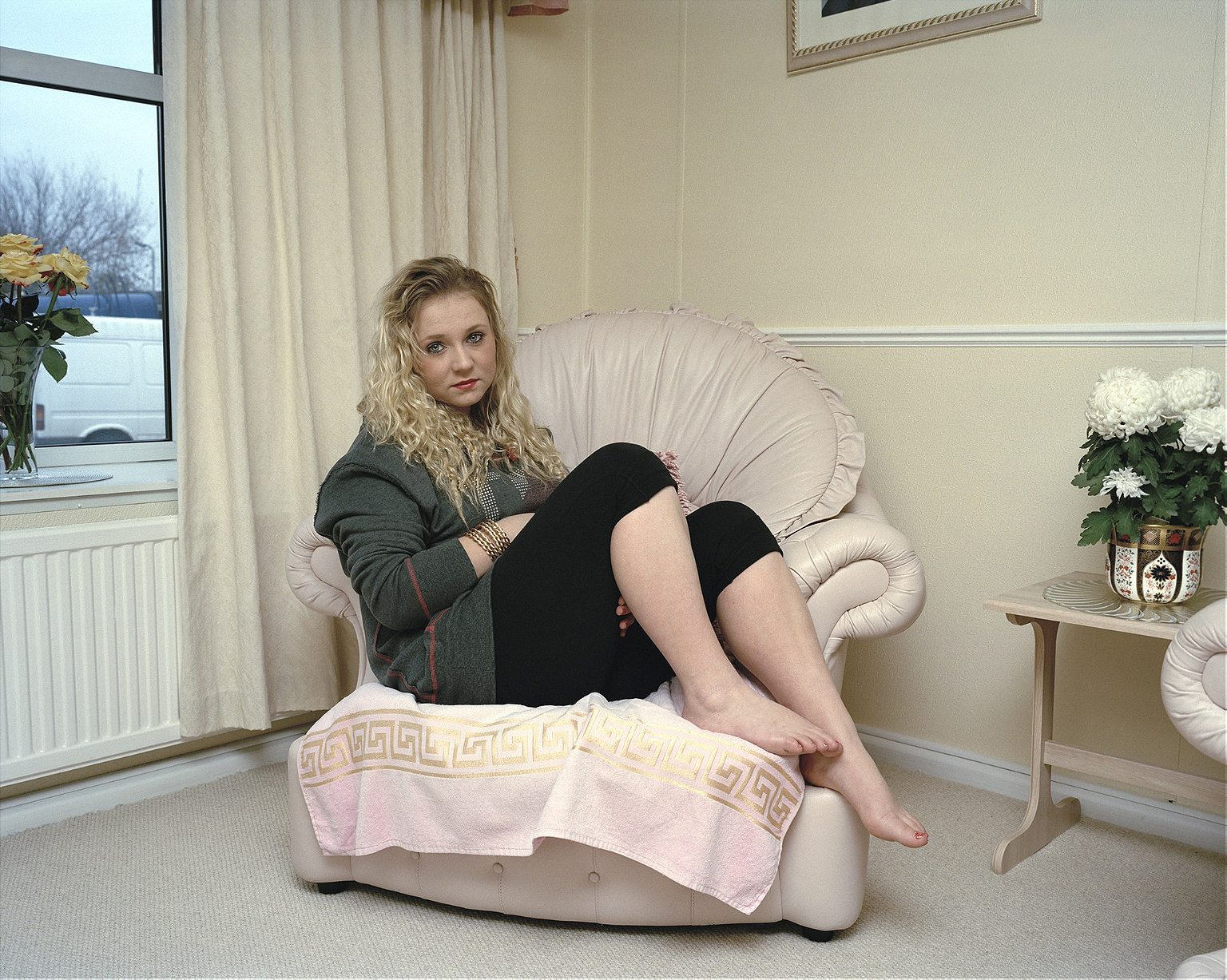
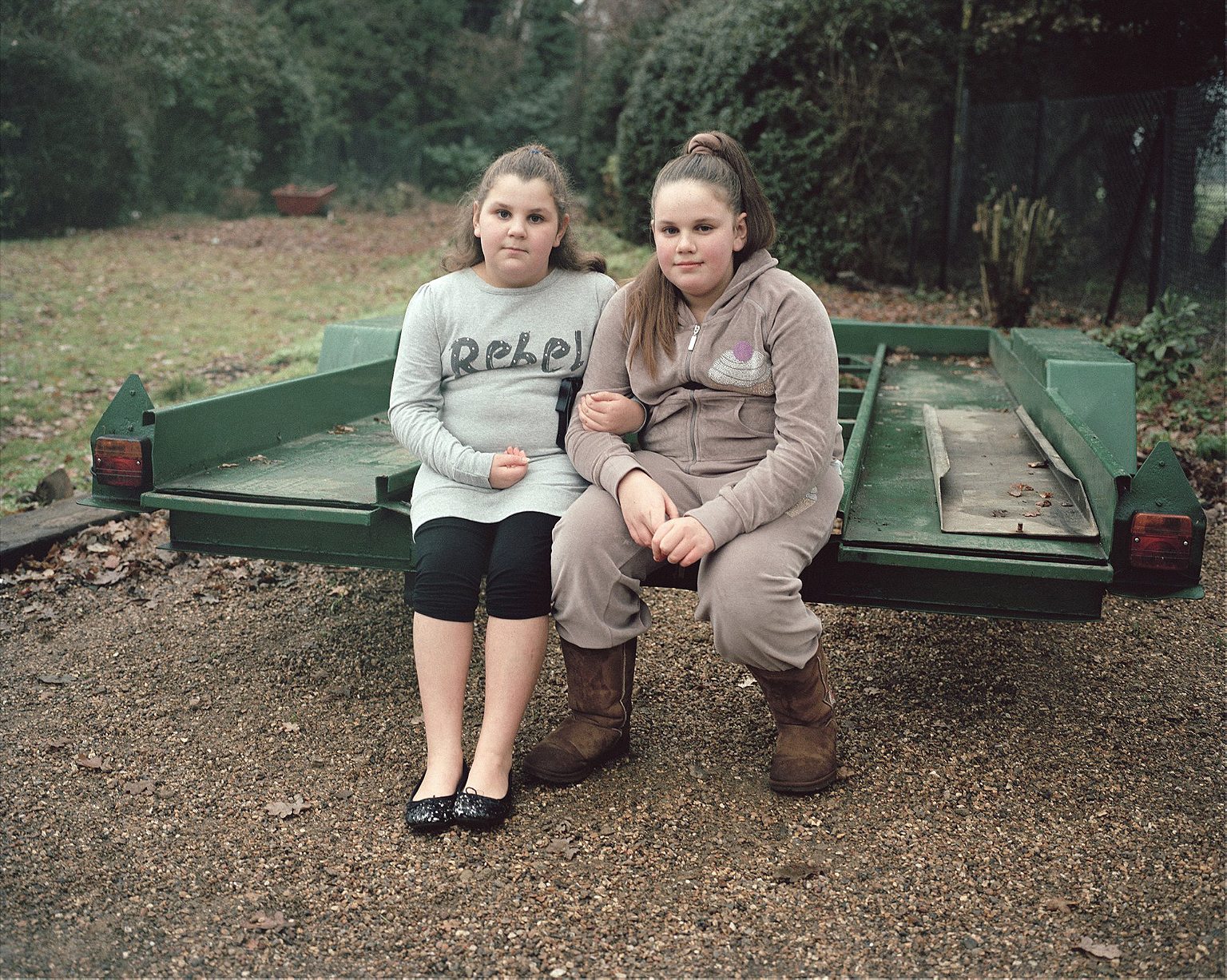
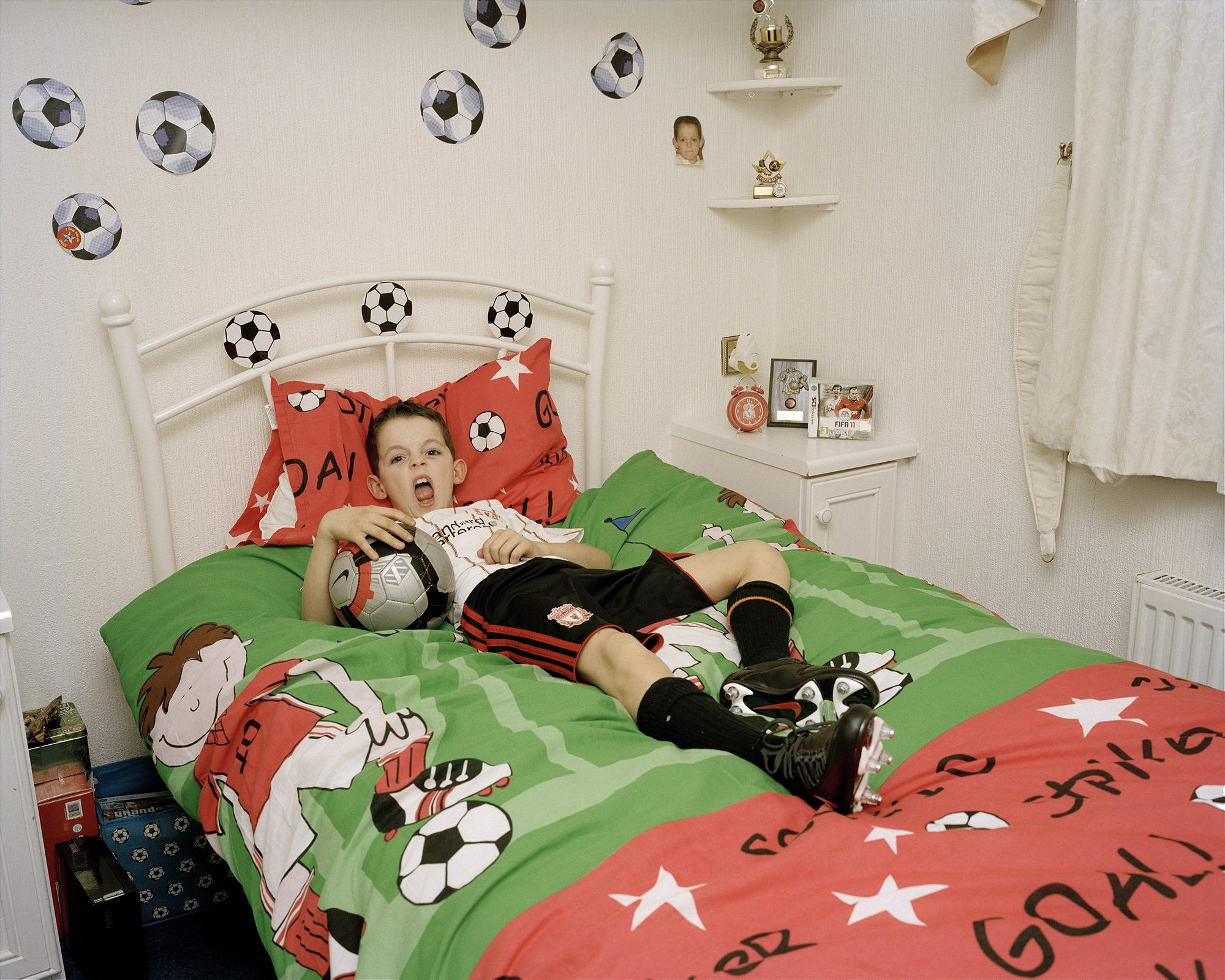
R&K: So what would you say surprised you the most about entering these communities? I’m sure, like all of us, you had an idea of what you were going to see before… How was that different?
CB: You know, one of the most surprising things about travelers is their homes. They are immaculate. Every surface is scrubbed, dusted and polished within an inch of its life… You could eat you dinner off it. They are incredibly house-proud.
R&K: That ties into the point I was going to make, that these photos are so different from the stereotypes.
CB: Exactly. This something I wanted to convey. The more alarming thing that surprised me, though, was the position of women within the community and the levels of literacy. From where I was standing, women’s lives are very limited. Men work and women stay at home. From my experiences in the community, this is what I understood: Gypsy Roma and Travelers are deeply proud of their roots and want to retain their heritage. But persecution and changes in laws pushed them away from mainstream society. I got the general sense that they don’t really want to be a part of mainstream society, but they are dependent upon it to make money.
But they have to realize they live in a different landscape. The one thing that really bothered me was the education aspect.
R&K: How so?
CB: Many of the girls are taken out of school. This is for a range of reasons… Some don’t go because they still travel. Others, go but they get bullied as there is a lot of stigma attached to their heritage. Then others are pulled out by their family when they don’t want them mixing with ‘country folk or gorgas‘ and don’t want their ideas and culture influenced. I don’t think getting an education should lessen your cultural values. As an outsider, I found it very worrying. I feel really strongly about education. And I don’t believe you should limit your children based on some idea it will retain your culture.
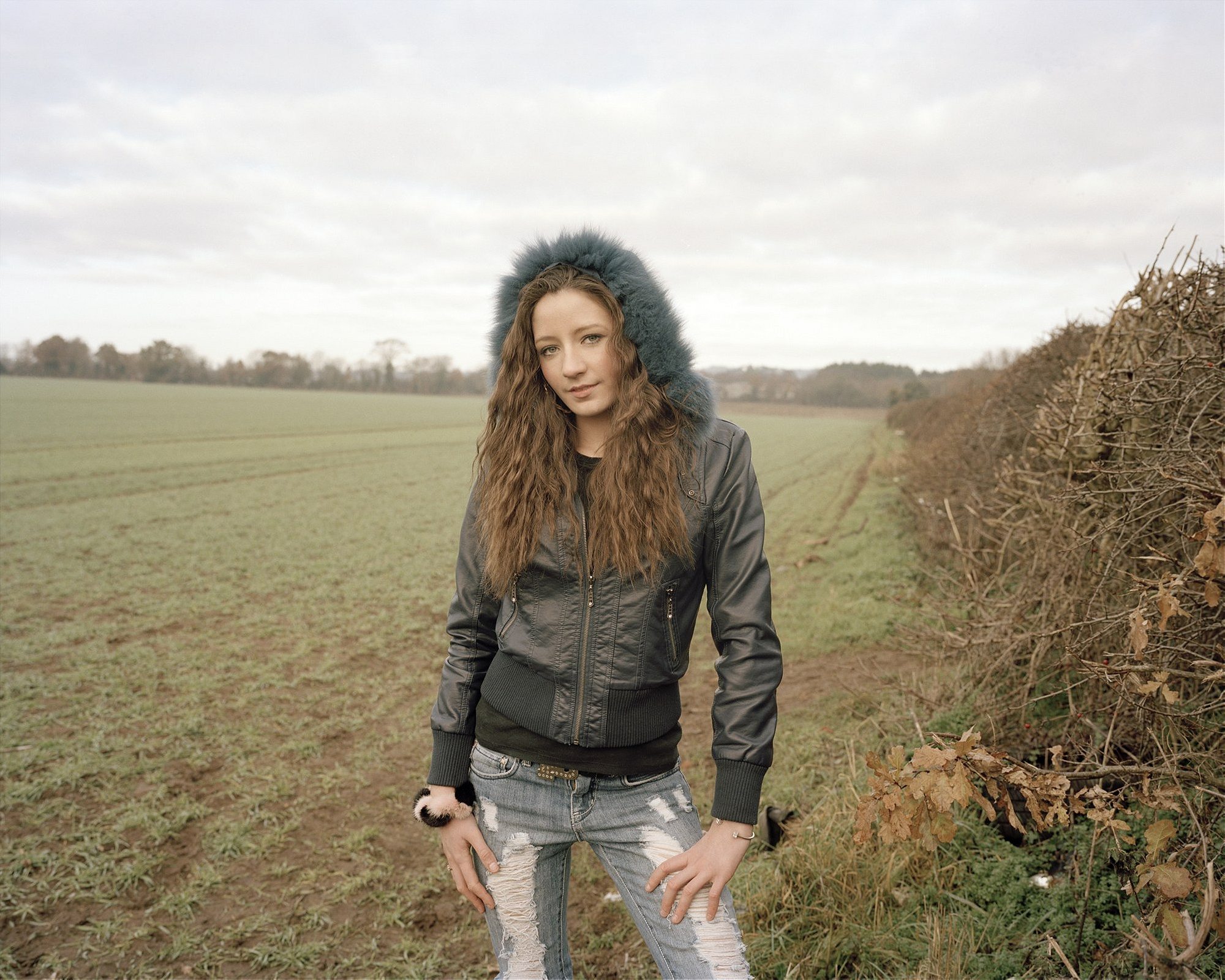
R&K: Did these strong feelings impact the way you spoke to them, photographed them? Did you ever try talking about these subjects?
CB: I found the men pretty difficult to be with. But as for the women and children, I spoke very openly about these topics, which was interesting to do. Some can be very matter of fact—this is our path in life and this is the way it is. But there are others see it would be good for them to get an education and have a job. I think that’s on the rise.
One of the most surprising things about travelers is their homes.
R&K: How long were you working on the project?
CB: Once I got access, I started work pretty quickly. It took about three months. It’s only a small collection of images, I think 15 in total. I didn’t want a title as I didn’t want to give any meaning to the images at all. I wanted them to be completely without prejudice.
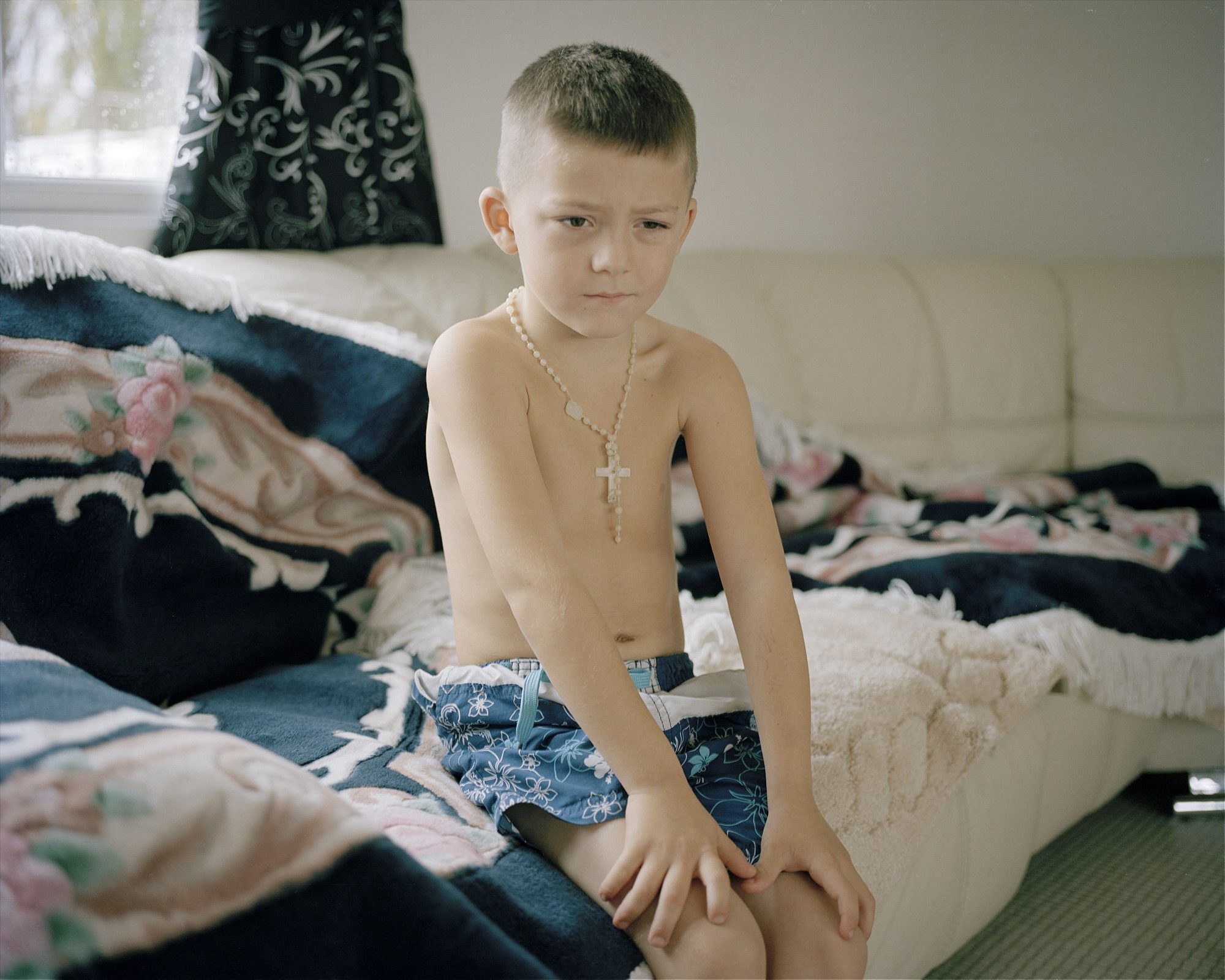
R&K: I know you also worked on a project in Transnistria. That place has always fascinated me.
CB: Transnistria is fascinating. The project began in late 2010 and continued until I ran out of money in June 2011. I would like to extend this body of work and produce a book. There was a combination of themes driven by my interpretation of the region, which I felt was a country exploited by its government for its own gain. This was then nourished by the stories of the people I met and the journeys I took. I was limited to two week trips at a time, but I went there five times. I also started a project in Ukraine. This was a natural progression from Transnistria as many of the people who live there are ethnic Ukrainians. It’s loosely based around the power and greed that underpins Ukrainian society. It’s a project in its early stages. I lived and worked there last year
R&K: In Kiev?
CB: I wish. Kharkov. I was teaching part-time and photographing the rest of the time. That’s how I fund my photography.
R&K: Great way to discover a country. How do you find all these teaching jobs?
CB: It’s a growing sector completely unaffected by the recession, it seems. And of course you’ve got to be willing to live in unfamiliar places.
R&K: Is portraiture your favorite kind of photography?
CB: I think it’s the most difficult. I do love the exchange and experience you can have with someone when making their portrait. I am incredibly shy so it’s sort of like a challenge to put myself in such direct contact with someone like that. Translators are a necessary evil for formal portraits. My Russian is rubbish. I don’t like smiling in photos. So I suppose I always tell subjects to just be natural, something like that. I don’t know, it’s about spending time with people and then the pictures naturally come about. You don’t have to do too much.
You can see more of Chloe Borkett’s photography here.